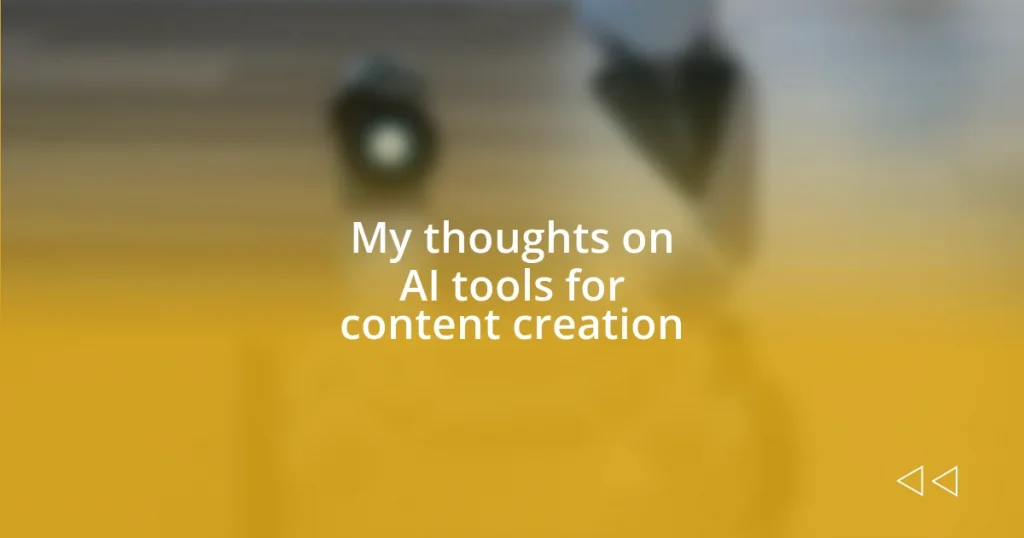Key takeaways:
- AI content tools enhance creativity and efficiency by brainstorming ideas, generating content, and providing editing assistance.
- Best practices for integrating AI include defining goals, combining AI with human creativity, and regularly customizing AI outputs to maintain personal style.
- Challenges with AI include lack of context, risk of homogenization in writing style, and potential over-reliance, which can diminish personal editing skills.
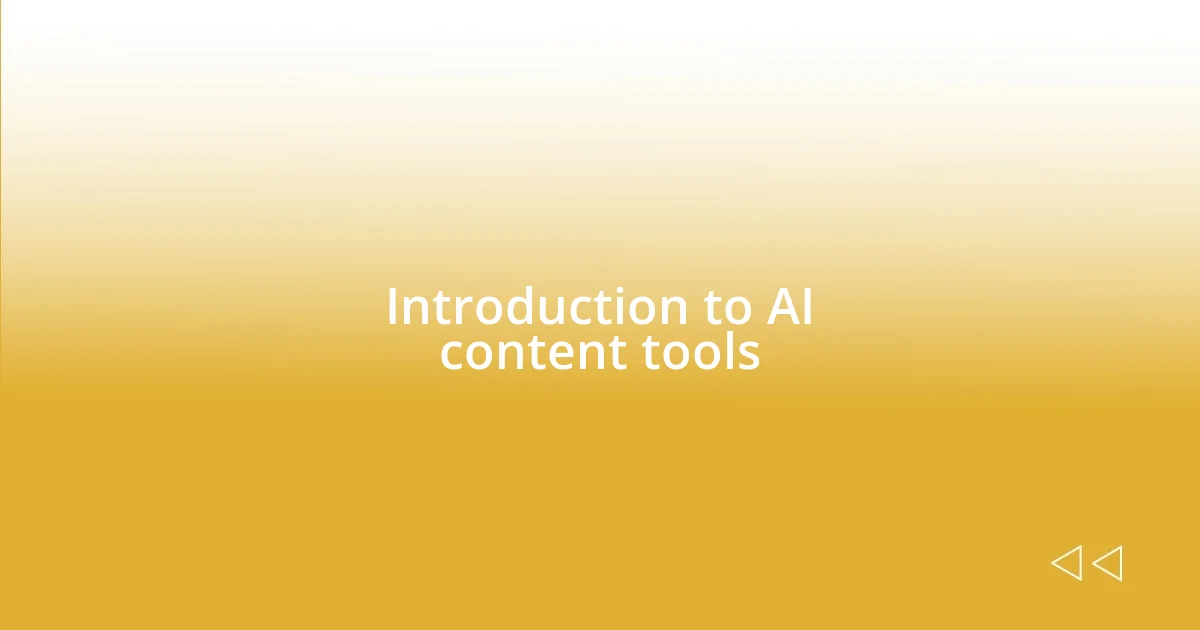
Introduction to AI content tools
Artificial Intelligence (AI) content tools have revolutionized the way we approach writing and creativity. I still remember the first time I used an AI tool to brainstorm ideas for a blog post. It was like having a brainstorming partner who never runs out of fresh perspectives. What’s incredible is how these tools can analyze vast amounts of data in seconds, providing insights that can spark new ideas and enhance the writing process.
These tools range from automated content generation to advanced editing aids, and they cater to various needs. I often find myself asking, “How did I ever manage without them?” The ability to generate catchy headlines or flawless grammar checks has made my writing more efficient—and yes, a little less stressful! I can focus on crafting the core message while AI handles the nitty-gritty details, making my work more enjoyable.
It’s fascinating to see how adaptable AI tools can be in meeting different content needs, whether for marketing, blogging, or even academic writing. Reflecting on my experiences, I appreciate how these technologies have opened doors to creativity that I didn’t fully exploit on my own. Are you curious about how these tools can enhance your writing journey? They certainly have transformed mine!
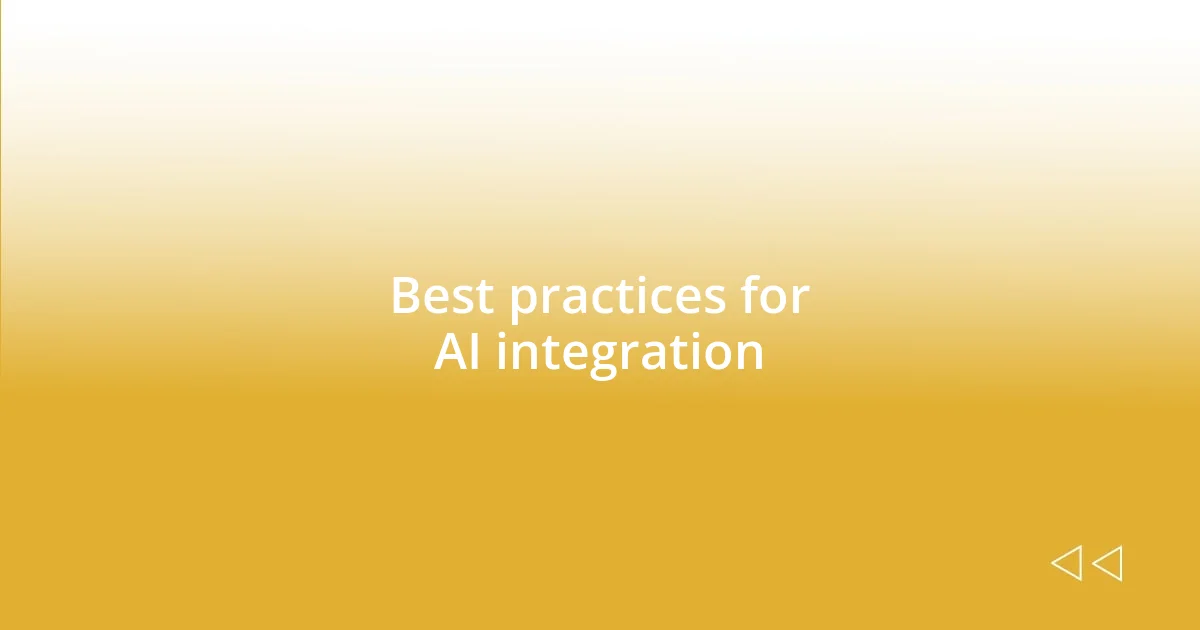
Best practices for AI integration
Integrating AI tools into your content creation process can significantly streamline your workflow, but I’ve learned a few best practices along the way that can make all the difference. For instance, I’ve discovered that it’s essential to establish clear objectives for AI use—whether that’s generating ideas, drafting content, or improving readability. Setting specific goals not only guides the AI but also keeps your creative focus sharp.
Here are some key best practices for integrating AI effectively into your content process:
- Define your goals: Determine what you want to achieve with the AI tool to tailor its use to your needs.
- Mix AI with human creativity: Use AI-generated suggestions as a springboard, rather than a crutch. I’ve often found that my best ideas come after I’ve let the AI inspire me.
- Review and customize: Always edit AI outputs to ensure they align with your voice and style. I’ve had AI write paragraphs that were technically sound but didn’t quite capture my tone.
- Iterate based on feedback: Measure the performance of AI-generated content and refine your prompts or approaches accordingly. It’s about learning what works for you over time.
- Stay updated: The landscape of AI is evolving, and so should your practices. Be willing to adopt new features and tools that enhance your content strategy.
Every time I implement these best practices, I feel a renewed sense of control and creativity, which is incredibly rewarding. Balancing AI efficiency with my personal touch keeps the work authentic and engaging.
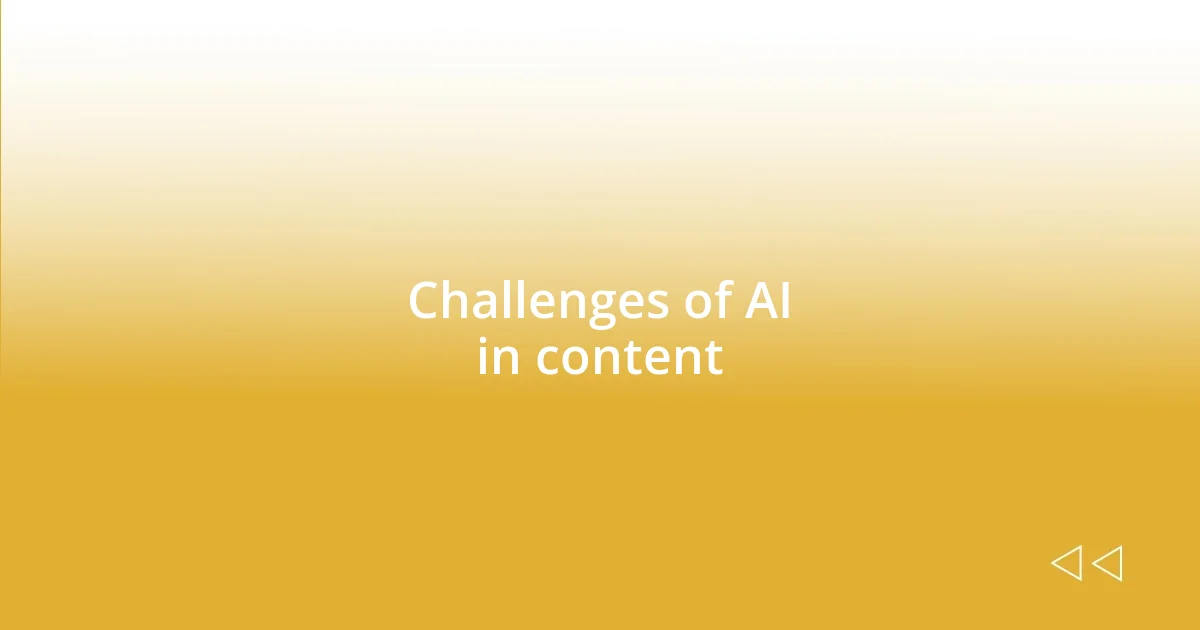
Challenges of AI in content
The challenges posed by AI in content creation are worth delving into, especially from my perspective. One primary concern is the occasional lack of context in AI-generated content. I once had an experience where an AI suggested a catchy phrase for my article, but it didn’t fit the subject at all. It’s essential to recognize that while AI can produce text quickly, it doesn’t always understand the nuanced themes or emotions at play. This disconnect can lead to content that feels disjointed.
Another significant challenge is the risk of homogenization. During a project where I relied heavily on an AI tool for drafting, I noticed that many pieces had a similar voice and style—almost robotic. I’ve come to appreciate the unique stamp of individuality I bring to my writing. When I lean too much on AI, I sometimes lose that personal touch. How can we strike a balance between leveraging AI’s efficiency and maintaining our unique voices?
Finally, there’s the issue of over-reliance. In another scenario, I found myself heavily dependent on an AI proofreading tool, which led to a decline in my own editing skills. It’s so easy to fall into that trap of believing AI will catch every mistake. Yet, I learned that the best way to sharpen my writing is to engage deeply with my work, applying my judgment rather than relying solely on technology. After all, isn’t our human perspective what ultimately enriches the content?
| Challenge | Description |
|---|---|
| Lack of Context | AI may generate content that misses the underlying themes or emotions. |
| Homogenization | Excessive use of AI can result in similar voices and styles across content pieces. |
| Over-reliance | Dependence on AI tools may diminish personal editing skills and critical engagement with content. |
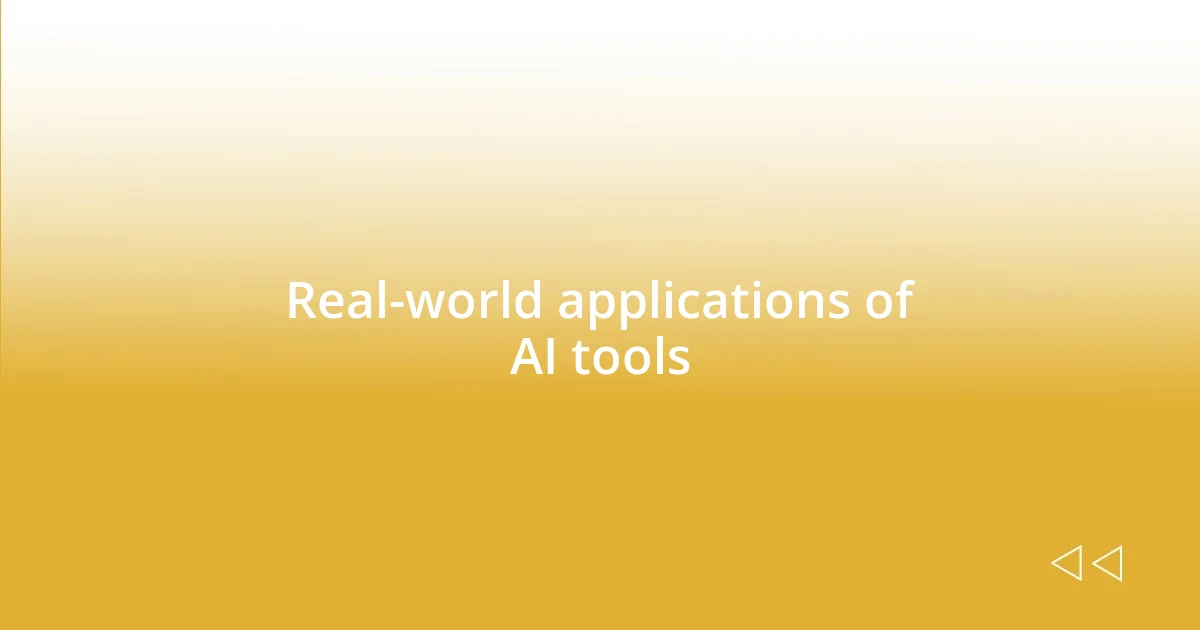
Real-world applications of AI tools
AI tools have carved out a significant niche in various real-world applications, transforming how we approach content creation. For me, collaborating with AI in drafting blog posts has been eye-opening. I often start with a rough outline, then let AI help me brainstorm ideas or fill in gaps. It’s like having a brainstorming buddy who never runs out of energy. Have you ever felt stuck trying to find the right words? Using AI as a sounding board can spark creativity when I need it most.
When it comes to marketing, AI tools are invaluable. For instance, I’ve noticed that platforms can analyze audience engagement metrics, helping me tweak my content strategy in real-time. I once ran a campaign and used AI to personalize emails based on user behavior. The open rates soared! That experience taught me just how powerful AI can be in tailoring messages that resonate deeply with my audience. It’s fascinating to see how data-driven decisions can lead to more meaningful connections, don’t you think?
I’ve also seen AI’s impact in the realm of social media management. I remember feeling overwhelmed by the constant demand for fresh content. I started using an AI scheduling tool, which suggested optimal posting times and even generated captions. The relief was immense, as it gave me more time to engage with my followers rather than just scrambling to keep up. With AI streamlining these tasks, my focus shifted back to what truly matters—building relationships in my online community. Have you experienced similar benefits in your own work?










